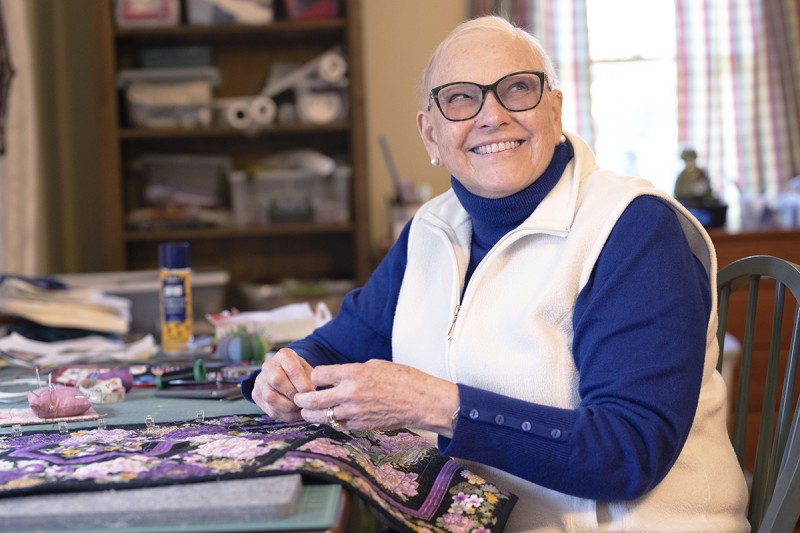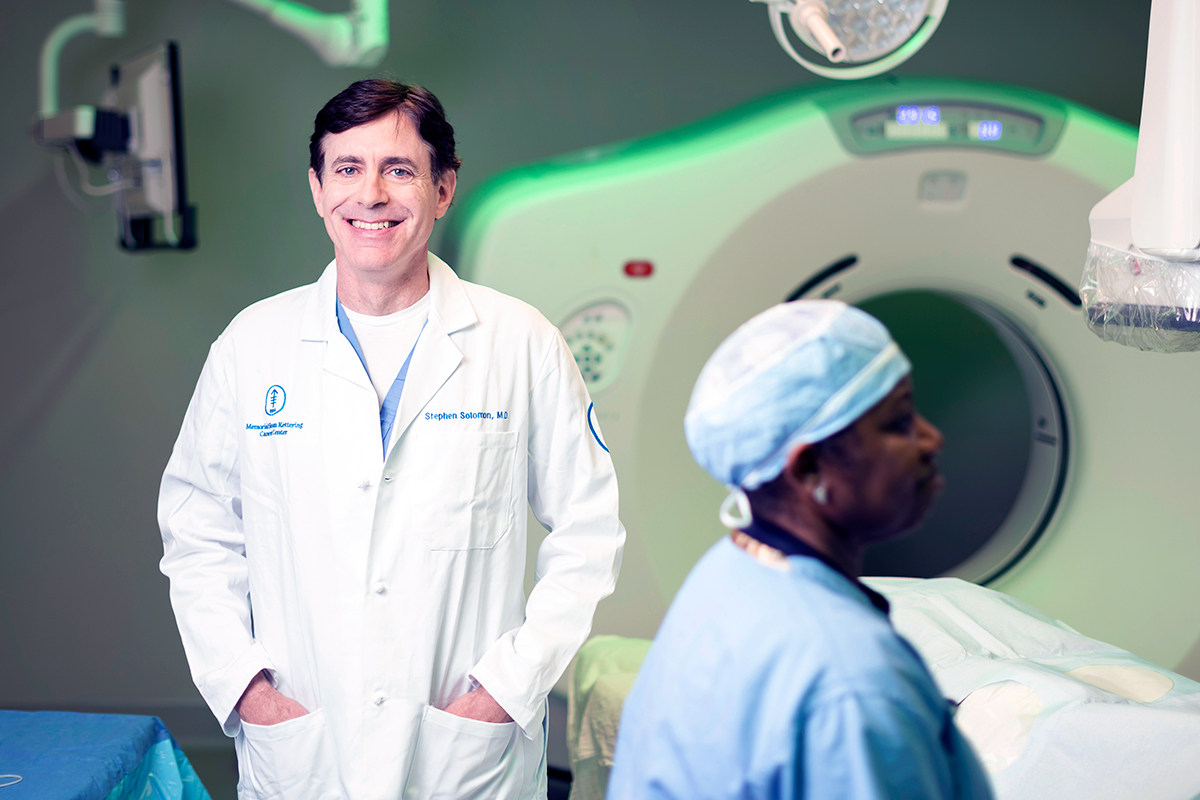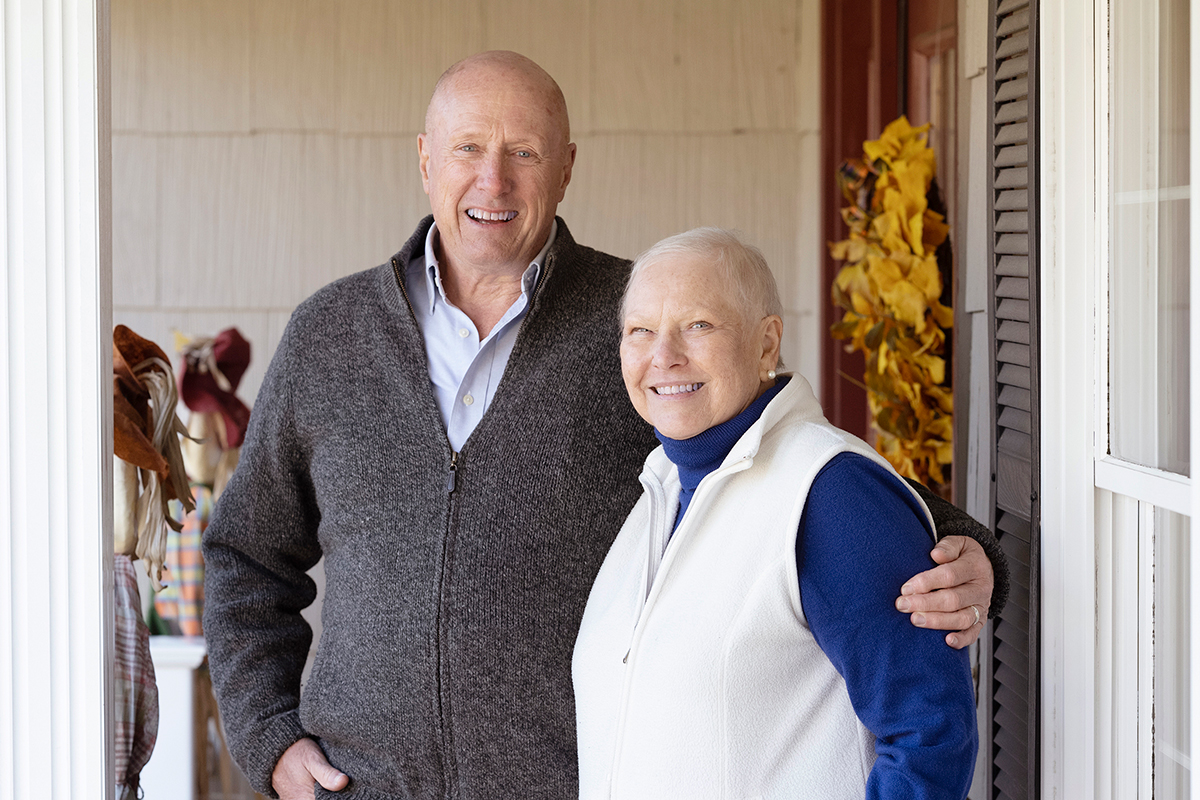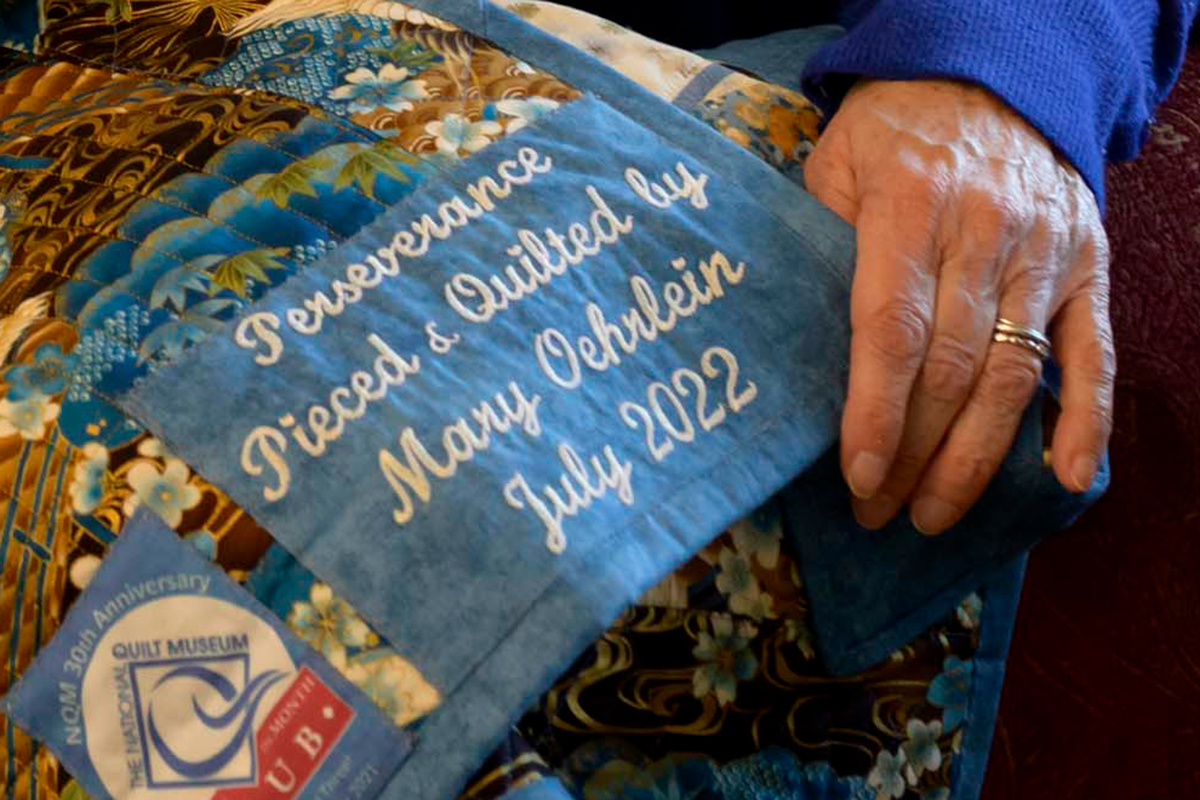
The day before Thanksgiving, Mary Oehrlein got the earth-shattering news. She’d had some tests at her local hospital to see what was causing her stomach problems. When she got a message to check her patient portal for results, she was stunned to read the words “possible pancreatic cancer.” She went to tell Rich, her husband of 53 years, and they cried.
“What happens to me if I only have three months to live?” the 73-year-old mother of three and grandmother of six remembers thinking that day in November 2021. She called her doctor’s office, and it was closed.
A Quick Start To Treatment at MSK

The day after Thanksgiving, Mary was on the phone with a Care Advisor at Memorial Sloan Kettering Cancer Center (MSK), and the process was moving quickly, thanks to a new service called MSK Rapid Diagnosis. It expedites getting a precise cancer diagnosis and referral to the correct oncologist for a patient’s particular cancer.
“Patients no longer need to have a confirmed cancer diagnosis before coming to MSK,” says interventional radiologist Stephen Solomon, MD, who is leading the effort. “Now people can make an appointment based on a scan with suspicious lesions. We’ll arrange a diagnostic biopsy quickly so they can be seen by the best expert for them.
The Benefits of MSK Rapid Diagnosis for Treating Cancer
- MSK diagnoses and treats more than 400 different types of cancers. Our doctors who diagnose diseases, also known as pathologists, are expert in both common and rare cancers. After their diagnosis, patients are matched with the right doctor for their unique cancer.
- Reducing the number of appointments before seeing a cancer specialist is a relief for patients who are anxious to get treatment started as soon as possible.
- MSK has a unique molecular analysis called MSK-IMPACT® that tests for 500 genes that could be driving the cancer. These results help pinpoint the right treatment plan.
- Being diagnosed at MSK means having access to clinical trials for cutting-edge therapies.
- Having the biopsy done at MSK eliminates the time and effort required to track down specimens from other institutions.
How Does MSK Rapid Diagnosis Get You Treated for Cancer Quickly?
The first step for a patient is to make an appointment online or call 800-525-2225.
A Care Advisor will help you work through insurance issues and then schedule an appointment with an interventional radiologist — typically within two to four business days.
Patients need to provide their medical records — usually their computed tomography (CT) and positron emission tomography (PET) scans.
Mary first spoke with an MSK representative on a Friday. The following week, she had an appointment with interventional radiologist Robert Siegelbaum, MD, Director of Interventional Radiology at MSK Commack. Walking into his office, Mary says she was scared but immediately felt supported. “They were phenomenal,” she recalls. “It was like they had no other patients that day. They just focused on me.”
Dr. Siegelbaum explained the procedure to her:
- She would be lightly sedated and comfortable for the procedure.
- His team would insert a needle into the area of abnormality in her liver, guided by ultrasound or CT scan imaging, to extract a tissue sample.
- The sample would be reviewed in real time while she was still on the procedure table to make sure it was adequate.
- The biopsy specimens would be sent to the Department of Pathology and Laboratory Medicine — where 19 multidisciplinary teams dedicated to specific cancers process 2,000 tissue samples a day, issuing more than 170,000 reports a year. All day and every day, their expert eyes are looking for cancer.
“We understand that patients are anxious for their biopsy results, so we work closely with our colleagues at MSK to quickly determine the type of cancer they have,” says Dr. Siegelbaum. “We are then able to refer people seamlessly to an appropriate surgeon or medical oncologist close to their home.”
The day after the consultation with Dr. Siegelbaum, Mary had the biopsy at MSK Commack — 20 minutes from her home in West Islip, Long Island.
Getting Pancreatic Cancer Stage Results From the Diagnostic Biopsy Test
Five days after the biopsy, on a Friday, Mary got the results. She had stage 4 pancreatic cancer, which had spread to her liver. It was devastating news. But by Tuesday, she was meeting with her gastrointestinal medical oncologist, Avni Desai, MD. Dr. Desai said surgery was not an option.
“I was scared,” says Mary. Then Dr. Desai told Mary something she holds dear to this day. “She said, ‘I look forward to treating you for years to come,’” recalls Mary. “My jaw dropped.”
Many patients say the hardest part of their journey is the limbo in the beginning. Waiting for a confirmed diagnosis after being told they probably have cancer is excruciating.
The new MSK program cuts out a middleman. Getting referred straightaway for a biopsy at MSK meant she was able to start her treatment soon.
If Mary had stayed with her local hospital, she was expecting to be referred first to a gastroenterologist, who then would have scheduled her to see an interventional radiologist to discuss having a biopsy. After that procedure, she would need to meet with an oncologist who would make a treatment plan.
“MSK shortened the bad time, when I didn’t know what was going to happen next,” says Mary.
How Rapid Diagnosis Could Improve Mary’s Pancreatic Cancer Prognosis
Dr. Desai prescribed an aggressive combination of three kinds of chemotherapy called FOLFIRINOX.
“I told Mary she would lose her hair and feel bad at times,” says Dr. Desai. “But I was confident we had a treatment plan that would keep her cancer in check.”
When the side effects became too much after three months, Dr. Desai stopped one of the drugs.
Even so, Mary has done exceptionally well. “She was feeling quite sick from the cancer itself when I first saw her. Those symptoms are gone,” says Dr. Desai. “Mary will continue chemotherapy to treat her cancer like a chronic condition.”

Coming to MSK from the very beginning has made a difference, says Dr. Desai. “Sometimes we see patients who have had a biopsy someplace else. Then they come to see us weeks, or even months, later. It takes time to gather slides and reports from outside institutions. I started Mary on treatment three days after seeing her.”
Surprisingly, Mary does not dread her visits to MSK Commack.
“I can imagine people making that turn down the drive to MSK may think: ‘Nothing good will come from here. This is the last resort.’ But we walk into the building with big smiles on our faces,” she says.
Continuing To Survive Pancreatic Cancer

Mary, a retired math teacher, is starting to feel like herself again. “I’m not sure I will ever be remission, but I am getting my life back in order,” she says.
She has rejoined her book club, attended her grandson’s confirmation in Delaware, and booked a European river cruise with her husband for April 2023.
Before she got sick, Mary was an avid quilter who gave her labors of love to family and friends. Each one has a title.
“It’s my therapy. It’s a piece of me,” she says. During her most difficult chemotherapy, she had to set aside a work in progress because she couldn’t climb the stairs. Recently, she has felt well enough to finish the quilt. Its title, proudly embroidered in the corner, is “Perseverance.”
